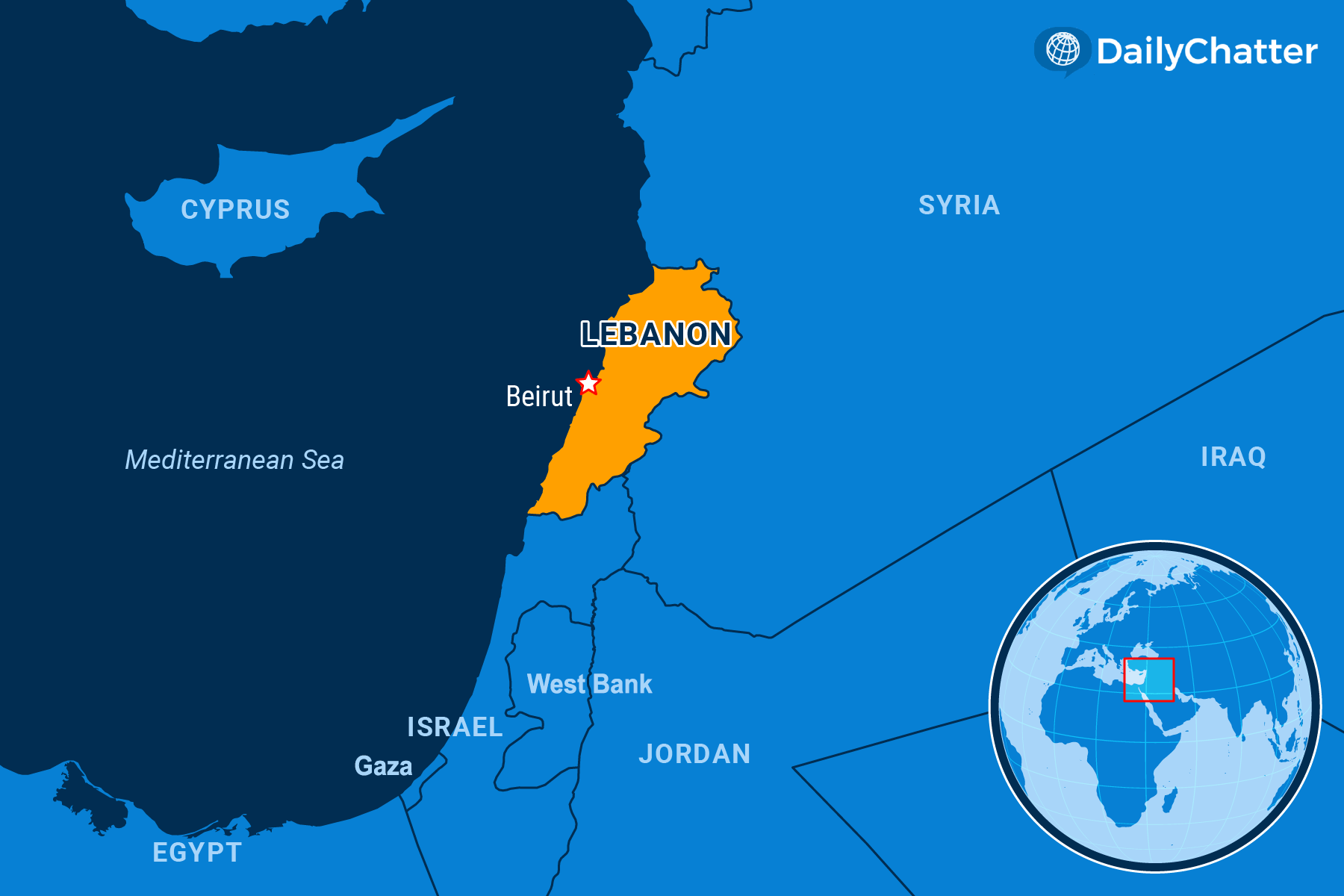Need to Know
November 03, 2023Bracing for the Storm
Lebanon

|
Listen to Today's Edition
|
Israel Defense Forces (IDF) recently deployed drones to strike at Hezbollah, the Iran-backed militia that also wields significant political power in Lebanon, Reuters reported. The rocket fire and missile exchanges between the IDF and Hezbollah and its allies have become a daily occurrence, the newswire wrote.
These Lebanon-based militias that include a wing of Gaza’s leaders, Hamas – all designated as terror groups by the US and the European Union – have been escalating their attacks on Israel since Hamas overran Israeli defenses and massacred civilians in the south on Oct. 7, as Deutsche Welle explained.
As a result, the atmosphere in Beirut and elsewhere in Lebanon has grown tense as fears of war breaking out in the country grow. Restaurants, hotels and bars have been emptying in the Lebanese capital, which has long been known for defying hardship to live life to excess.
But people in Lebanon, a mosaic of religions and groups, are nervous. The Lebanese remember the war between Hezbollah and Israel in 2006, when Israeli jets leveled entire blocks in Beirut. Many of those who suffered in 2006 now sympathize with Hezbollah.
Beirut resident Abu Qassem’s sisters and daughter were among as many as 20,000 people who had fled southern Lebanon to escape escalating violence near the Israeli border. “I’m too old to fight myself, but if war breaks out, I will go to the village to cook or wash their clothes,” he told the Guardian. “For us people of the south, after God, we only have faith in the resistance.”
Others don’t care about the politics but can’t leave: Syria isn’t an option anymore as it was in 2006 when it took thousands of refugees from Lebanon, and rents in other parts of Lebanon have skyrocketed as people move away from the south. “Everyone in Lebanon is in financial hardship,” said one elderly woman in a suburb of Beirut. “I can’t go and burden other people. If I die, I die in dignity at home.”
Lebanese leaders are working furiously to avoid a full-blown war, however, as memories, scars and rubble also linger from the brutal civil war it experienced between 1975 and 1990, which was also exacerbated, in part, by the involvement of armed Palestinians, Israelis and Syria. According to researchers, no country has been more impacted by the Israeli-Palestinian conflict than Lebanon – and Palestinian refugees are blamed for the civil war that killed more than 100,000 people.
Now, as a result of those fears, Prime Minister Najib Mikati, for instance, has reaffirmed his commitment to the United Nations resolutions that were designed to maintain peace on his country’s border with Israel, Al-Monitor noted.
And as Hamas pressures Hezbollah to increase its engagement, Lebanese politicians are pressuring Hezbollah to refrain from escalating conflict with Israel, the Washington Post reported. “All Western countries are talking to us, are sending their ambassadors, saying Hezbollah must not enter the war,” a senior Lebanese official told the newspaper. “What we tell [Hezbollah], as the government, is that, ‘We can’t take a war.’ And the answer is, ‘We understand you. But we can also not take the fall of Hamas.’”
Mikati, however, has good reason to do everything he can to keep the fighting from escalating in his country. There’s a good chance the Lebanese state would not survive a conflict, Reuters explained, citing an “economy in ruins and a crumbling state.”
Lebanon has been on the verge of collapse for years, lacking the resources to properly dispose of trash, or keep track of a warehouse of fertilizers that exploded in 2020, killing more than 200 people, injuring 6,000, and damaging the harbor and other parts of the capital. Jobs have disappeared, banks are robbed just to recover personal savings and inflation at times has reached 350 percent, according to the World Bank. The country has lacked true political leadership for years, wrote GIS.
Hezbollah so far has coordinated attacks so as not to elicit devastating responses, said analysts. They want to harass Israel as a member of a coalition of pro-Iranian, anti-Israel organizations – the “axis of resistance,” according to National Public Radio – not trigger a humanitarian crisis in their backyard.
The situation, however, is perilous. American officials and researchers at the International Monetary Fund have warned that, even without a full-blown war, more violence could seriously undermine Lebanon and other fragile states in the region, the Associated Press reported.
These assessments aren’t yet using the analogy of a powder keg, but they might as well be.
Not already a subscriber?
If you would like to receive DailyChatter directly to your inbox each morning, subscribe below with a free two-week trial.
Support journalism that’s independent, non-partisan, and fair.
If you are a student or faculty with a valid school email, you can sign up for a FREE student subscription or faculty subscription.
Questions? Write to us at hello@dailychatter.com.

